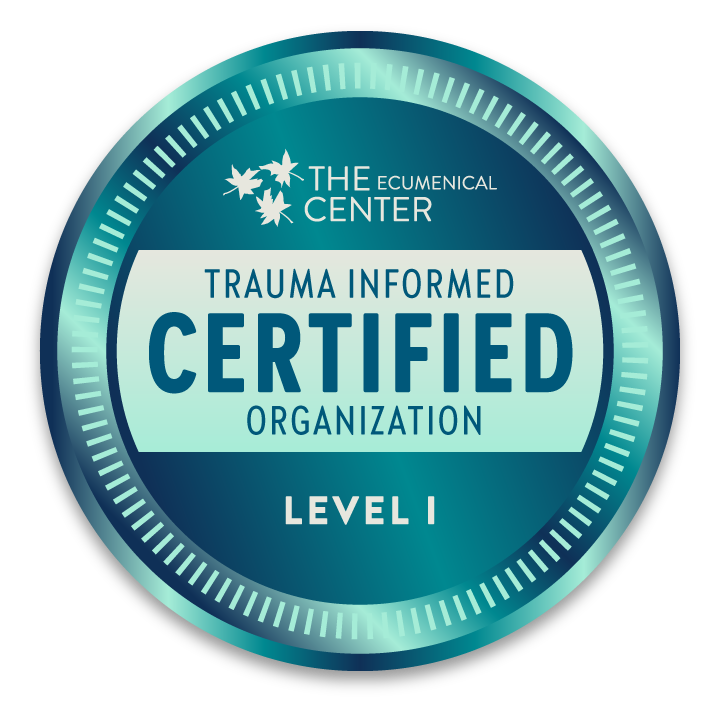Thoughts On Corporal Punishment
Corporal punishment has been a controversial topic for many decades, particularly among Christian families. Proponents of this disciplinary method often cite passages in the Old Testament book of Proverbs. We have all heard the saying, “spare the rod, spoil the child.” Contrary to popular belief, this phrase isn’t found in Scripture. It’s actually a quote from a satirical poem, “Hudibras,” penned by 17th century Englishman, Samuel Butler, and likely inspired by Proverbs 13:24, “Whoever spares the rod hates their children, but the one who loves their children is careful to discipline them.
As Christian parents, we feel the weight of training our children to love God and obey His Word. Sometimes, our attempts to be faithful to Scripture while also being mindful of trauma’s impact can be downright confusing. Many of us were raised by godly parents who used the practice of spanking and we say of ourselves, “We turned out just fine!” or, “The Bible commands us to spank!” Spanking is a physical means to address inappropriate conduct. While it may temporarily stop behavior in the moment, spanking does not teach a child how to respond differently.
For our children who have experienced trauma in the context of relationship, rigid punishment based on rules may increase fear and complicate our attempts to build trust and attachment. A 2005 Harvard University study suggests that children in the U.S. foster system suffer with post-traumatic stress disorder (PTSD) at a rate more than twice that of combat veterans.[1] This requires us to cultivate an awareness of what we bring to every interaction with our children. We must use the wisdom of Scripture to help our wounded kids make healing connections that point them to the love and hope found only in Jesus Christ.
Helping families heal through coaching, counseling and therapeutic services.
Start Healing. Reach out today.
Helping families heal through coaching, counseling and therapeutic services.
Start Healing. Reach out today.
What We Don’t See in the Bible About Discipline
So, what does God say about spanking in the His Word? Nothing! Curiously, there are no examples of children being spanked in the Bible. In fact, the word “spank” does not appear anywhere in the Scriptures.
What We See in the Bible About Discipline
It is crucial to use the whole counsel of God’s Word to fully understand what discipline is and how to apply it. With any verse, we need to consider the original context, along with how it fits into the greater biblical picture. The book of Proverbs is not considered history or law. It is a genre of literature within the Bible known as “poetic” or “wisdom” literature.
The wise sayings found in the book of Proverbs should be interpreted differently than we interpret explicit commands. Proverbs are divine guidelines and wise observations which are not always inflexible laws or absolute promises.[2]
With this in mind, we can examine the verses that reference using a rod on children (Proverbs 13:24, 23:13, and 29:15). In these verses, a rod (the Hebrew word is “shebet”) was a type of staff, club, or scepter. When understood in the context of the “shebet” in Psalm 23, it signifies support, guidance, and divine strength. “A legitimate translation of Proverbs 13:24 might be: “He who withholds support from his son hates him; but he who loves him is diligent to discipline him by instruction, training, nurture, and care.”[3]
In the NIV Application Commentary on Proverbs, Dr. Paul Koptak writes,“This saying contrasts fathers who ‘hate’ their children and those who ‘love’ them by teaching them. The difference is ‘discipline,’ the accent falling on loving correction rather than a particular form of it…similar sayings make it clear that the issue is one of instruction, not the means used to bring it about.” [4]
Discipleship Model as a Tool
Biblical discipline includes instruction in the context of relationship. The root word of discipline is “disciple,” which comes from the Latin discipulus, meaning “student.” A discipleship model of discipline requires patience, connection with the Lord and our children, searching for the meaning behind behavior, modeling, teaching, guiding, and training. Rather than a punitive focus on what not to do, discipleship values change from the inside out. True discipline is teaching not only what not to do—but also the right way to do it the next time.
Teaching our kids reverence for God is important, and so is understanding how Jesus gently shepherds us.
If Not Spanking, Then What?
The question is not if our children will display behavioral challenges such as defiance, disobedience and disrespect, but when. At-risk children often do not respond well to traditional methods of discipline because their brains are stuck in survival mode (fight, flight, or freeze). A child who feels threatened or fearful has difficulty mastering a new skill. The late Dr. Karyn Purvis and her colleague, Dr. David Cross, pioneered Trust-Based Relational Intervention® (TBRI®) to equip adoptive and foster parents with new discipline strategies for vulnerable children. A foundational strength of TBRI® is that it preserves a warm, loving connection between parent and child throughout the discipline process.
Helpful TBRI® tips include the following[5]:
- Remember to see your child with eyes of compassion.
- Correction of your child’s behavior should always be rooted in connection.
- When observing poor behavior, ask yourself two questions:
- What is my child’s behavior really saying?
- What does my child really need?
- Use the “IDEAL” approach to respond:
- I—immediately. Respond within 3 seconds of the misbehavior.
- D—directly to your child by making eye contact, giving undivided attention, and drawing your child nearer to you.
- E—efficiently. Use the least amount of firmness, corrective effort, and words necessary.
- A—in an action-based redirection. Physically lead your child through a real-life “do-over,” using the appropriate alternative behavior.
- L—leveled at the behavior, not your child. Your child is never rejected, even when behavior is rejected.
- Use playful engagement to address mild challenges. A light-hearted tone and good-natured questions (“Whoa! Are you asking or telling me?”) offer the child a reminder and a chance to self-correct.
Taking Personal Inventory
As parents, it is important to be fully present when discipline issues arise. Take a personal inventory by asking yourself these questions:
- Is this about my child or me?
- Am I disciplining in anger?
- Is my focus on what others think of me and my parenting, or is it on the heart of my child?
- How will my discipline help my child to make a different choice the next time?
- What is my primary goal? (“good” or right behavior, or building a strong and healthy relationship that enables them to learn and grow?)
- What message is my child hearing from me at a basic level? Is it my child against me, or is it the two of us together?
The journey toward healing will surely be filled with many twists and turns and it won’t be quick or easy. The Bible is clear that God intended for us to correct our children. Ephesians 6:4 also reminds us of the ultimate purposes for discipline: “Fathers, do not exasperate your children; instead, bring them up in the training and instruction of the Lord.” Correction of our child’s behavior should always be rooted in connection.
To learn more about ways to correct with connection and leave spanking behind, contact Chosen today!
[1] P. J. Pecora, C. R. White, L. J. Jackson, and T. Wiggins, “Mental Health of Current and Former Recipients of Foster Care: A Review of Recent Studies in the USA,” Child and Family Social Work, no. 14 (2009):132–146.
[2] MacArthur Study Bible (Wheaton, IL: Crossway, 2010).
[3] Eric R. Andrae, Spare the Rod, Spoil the Child? Spare Me!
(N.p.: American Theological Library Association, Summer 2014).
[4] Paul E. Koptak, The NIV Application Commentary: Proverbs (Grand Rapids: Zondervan, 2003).
[5] Karyn B. Purvis, David R. Cross, and Wendy Lyons Sunshine, The Connected Child (New York: McGraw-Hill, 2007).













